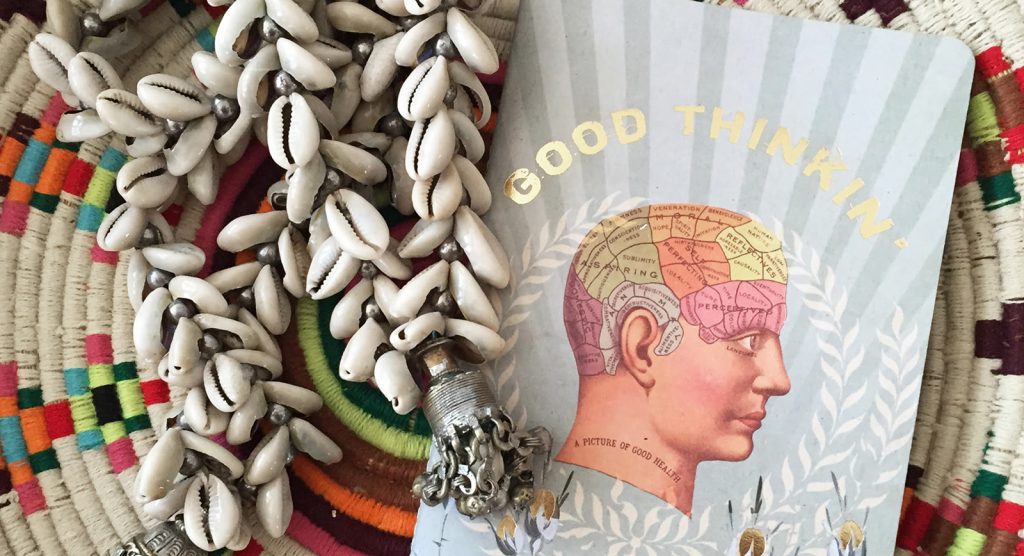When we were younger, playing make-believe was our full-time job. We imagined cardboard boxes into cars, rocks and sand into currency, dirt and water into flour and milk. As we got older and society taught us the only things worth investing time in were projects that could be seen, measured, achieved and shown off to others, we ceased our careless exploration. But what if playing make-believe is exactly what we need to be doing in our adult lives to be content, as some experts are suggesting?
This particular type of pretending I’m referring to offers you bone-deep contentment, crystal-clear clarity and that whole-body-feels-good kind of happiness. It involves pretending you’re a scientist, a researcher, or a passive observer of your own human experience.
In an interview with actor, comedian and writer Pete Holmes, author of Eat, Pray, Love and Big Magic: Creative Living Beyond Fear, Elizabeth Gilbert, shares her big science secret. She mentions that when she is angry, anxious, annoyed, or upset she imagines herself as an anthropologist of her own mind. Imaginary clipboard in hand, she watches how she reacts and behaves in a testing situation. She observes and writes about her racing thoughts. She tracks her physiological responses, her quickening breath, her rising temperature, her heart rate, thinking, “How interesting… the human is getting annoyed at the person on their phone in the airplane.”
“She mentions that when she is angry, anxious, annoyed, or upset she imagines herself as an anthropologist of her own mind. Imaginary clipboard in hand, she watches how she reacts and behaves in a testing situation.”
 Think of the last occurrence that evoked from you feelings of anger, anxiety or annoyance. The anger does not sit well with many of us, and we should be weary of sitting with it, too. What normally happens is one of two things. We try to externally purge these emotions — we rage, we cry. Or, we turn inwards and try to stop or defeat these brute emotions with equally as brute force. Even after all this soul searching, meditating, yoga, studying and self-work, you’re still losing your head because a co-worker talked to you in a condescending way? We scold ourselves. We yell at the emotions, tell them we hate them and we want them gone. We sneer at the anxiety, call it pathetic and weak. What we don’t realize is that this just kicks the negativity out the front door only to have it sneak back in through the back door in a different hat. It’s all suffering. And it all gets us nowhere.
Think of the last occurrence that evoked from you feelings of anger, anxiety or annoyance. The anger does not sit well with many of us, and we should be weary of sitting with it, too. What normally happens is one of two things. We try to externally purge these emotions — we rage, we cry. Or, we turn inwards and try to stop or defeat these brute emotions with equally as brute force. Even after all this soul searching, meditating, yoga, studying and self-work, you’re still losing your head because a co-worker talked to you in a condescending way? We scold ourselves. We yell at the emotions, tell them we hate them and we want them gone. We sneer at the anxiety, call it pathetic and weak. What we don’t realize is that this just kicks the negativity out the front door only to have it sneak back in through the back door in a different hat. It’s all suffering. And it all gets us nowhere.
What if the key to overcome was hidden in not attempting to control these emotions, instead simply watching them come and go with detached fascination? Pretending. Playing make-believe. Flipping the script in your mind to create a wide-eyed relationship with your human experience as opposed to nourishing despair.
What if the key to overcome was hidden in not attempting to control these emotions, instead simply watching them come and go with detached fascination?
Former Monk and founder of guided meditation app Headspace Andy Puddicombe has his own version of the game, and invites us to imagine ourselves sitting on the side of a busy road, watching our thoughts go by. “Many people think training the mind is about stopping thoughts or eliminating feelings. But the reality is a bit different,” he says, “imagine yourself sitting by the side of the road. The passing cars represent the thoughts and the feelings. All you have to do is sit there and watch the cars. But often we become unsettled by the movement in traffic, so we run out and try stop the cars. And all this running around only adds to feelings of restlessness in the mind. So training the mind is about changing our relationship with our passing thoughts and feelings. Learning to view them with a little more perspective. And when we do this we naturally find a place of calm.
Will we sometimes forget the idea of the exercise and become distracted? “Of course we will,” Andy says. “But as soon as we remember, there we are, back on the side of the road again, watching the traffic go by, perfectly at ease in both body and mind.”
By Caitlin Creeper





